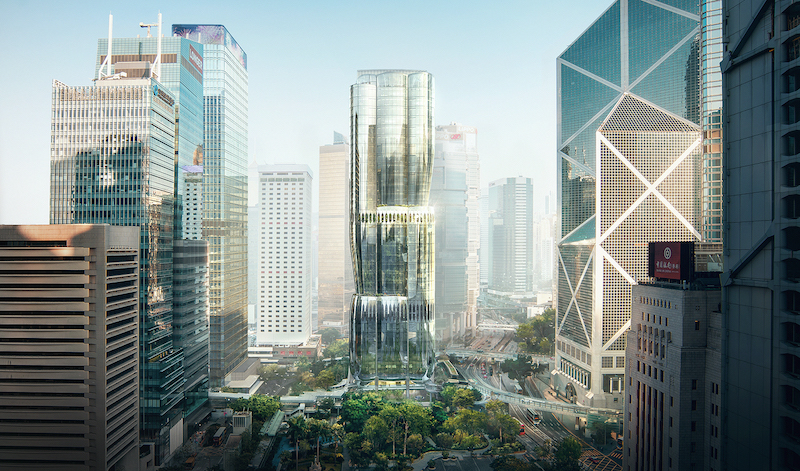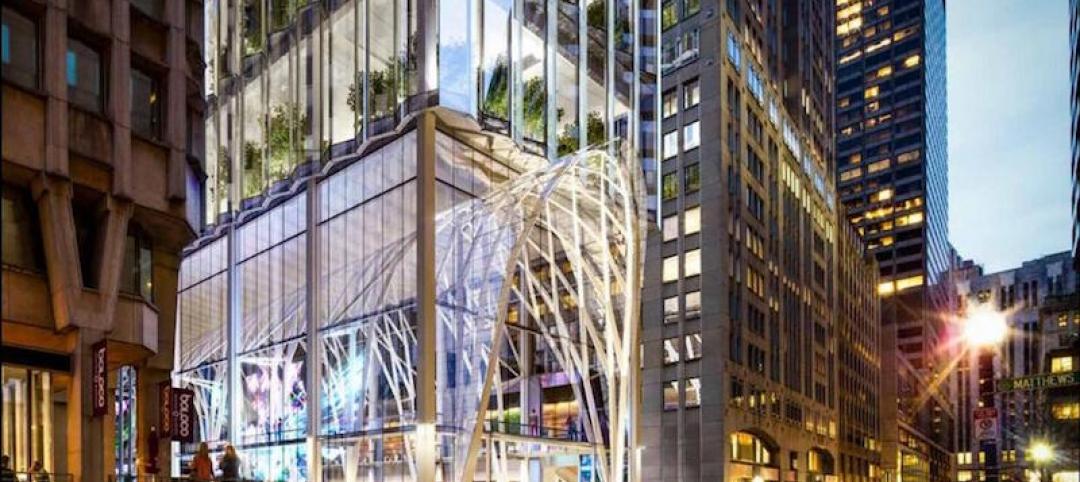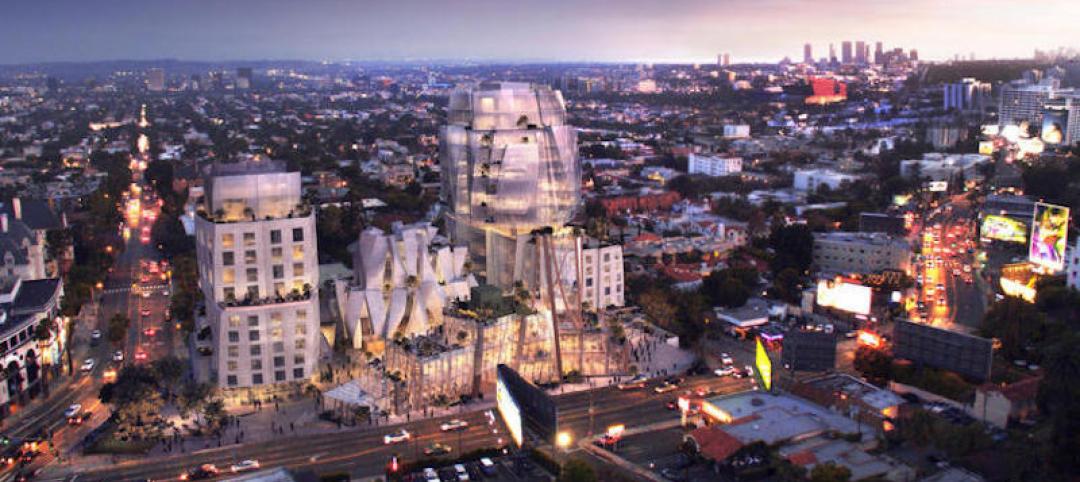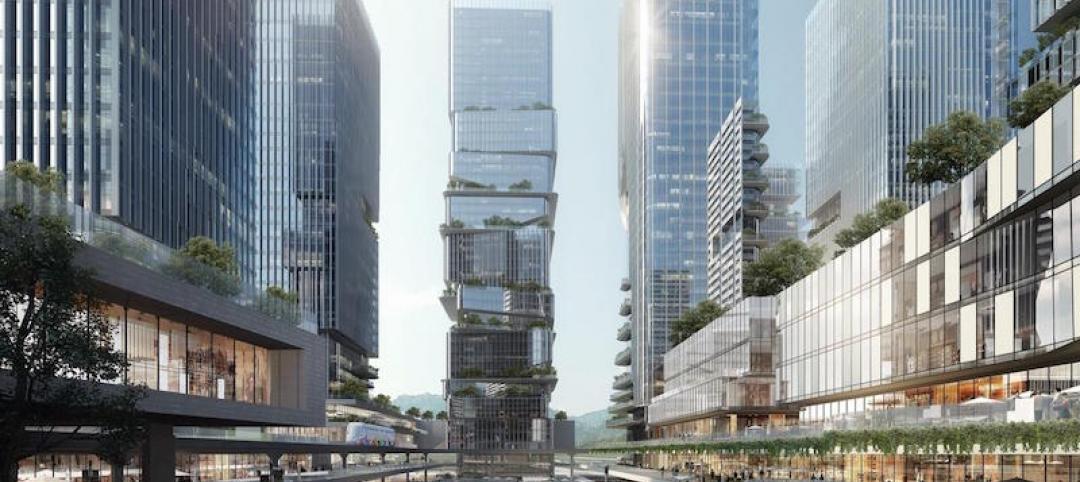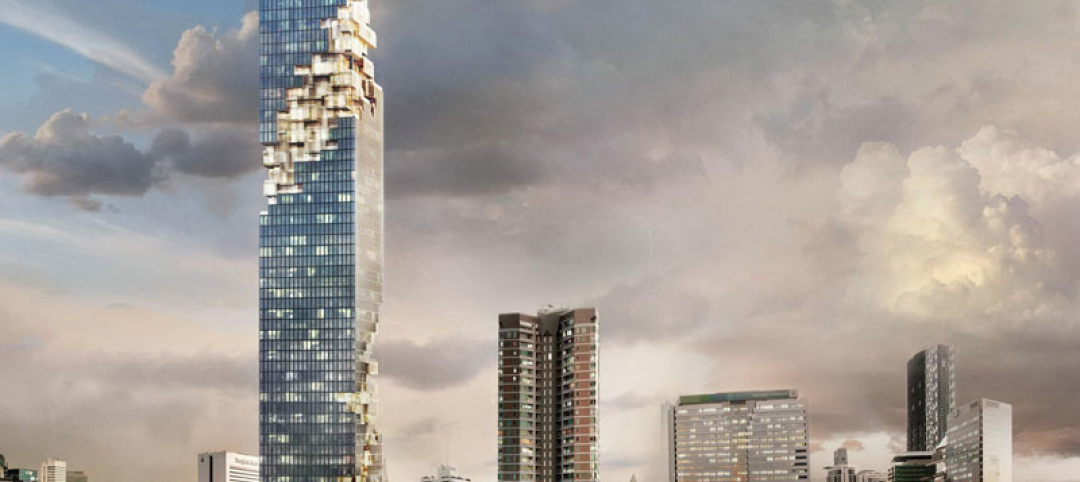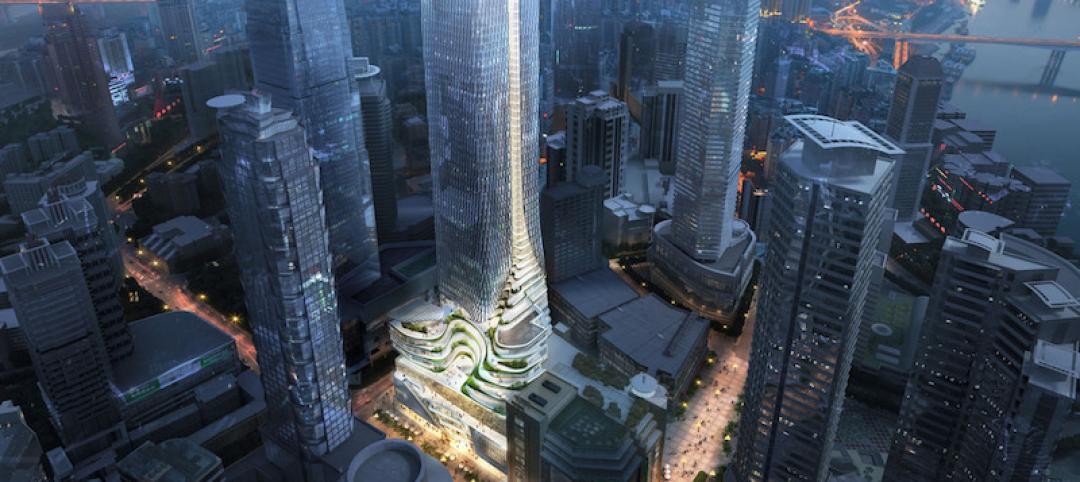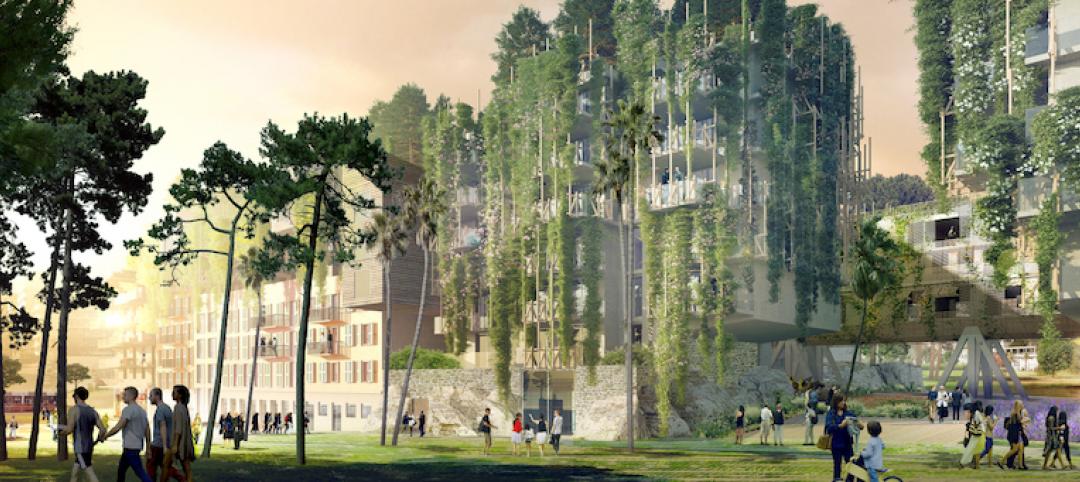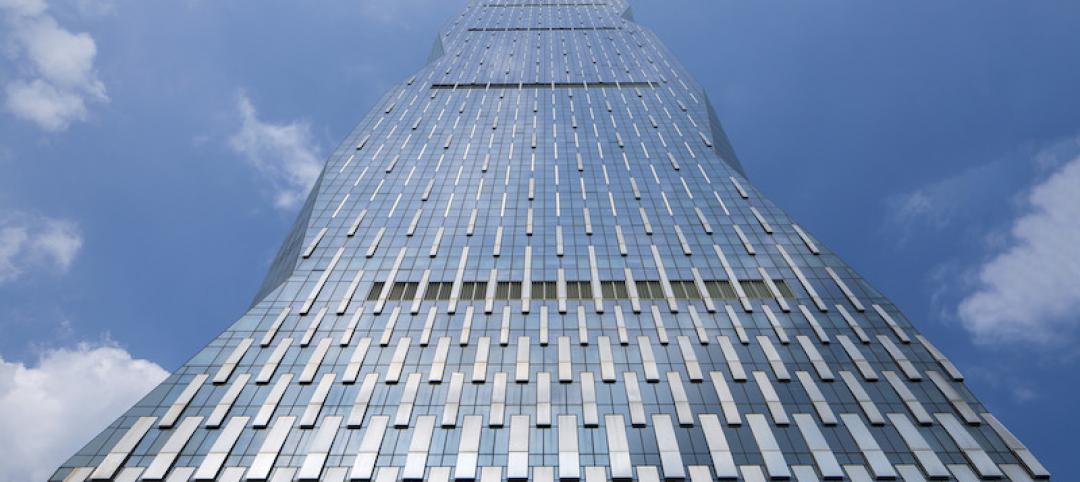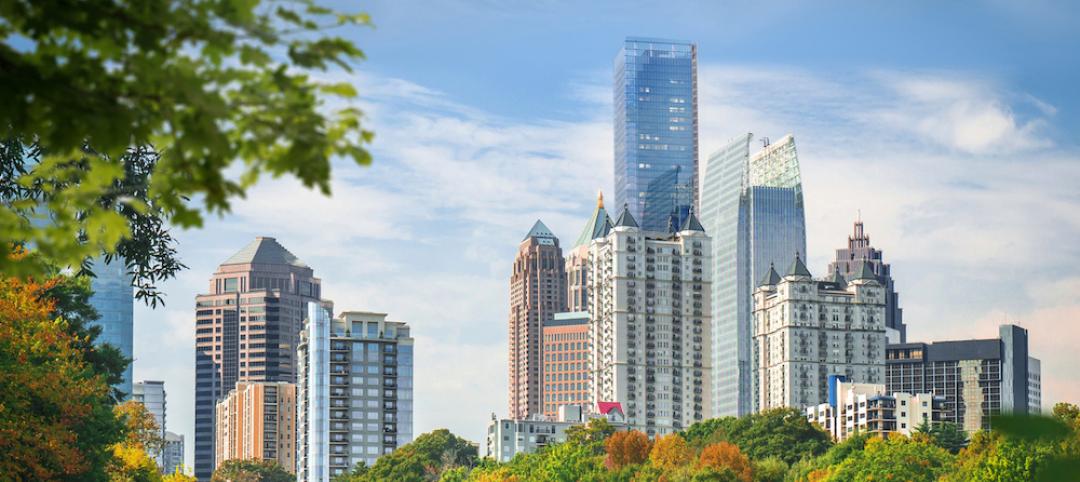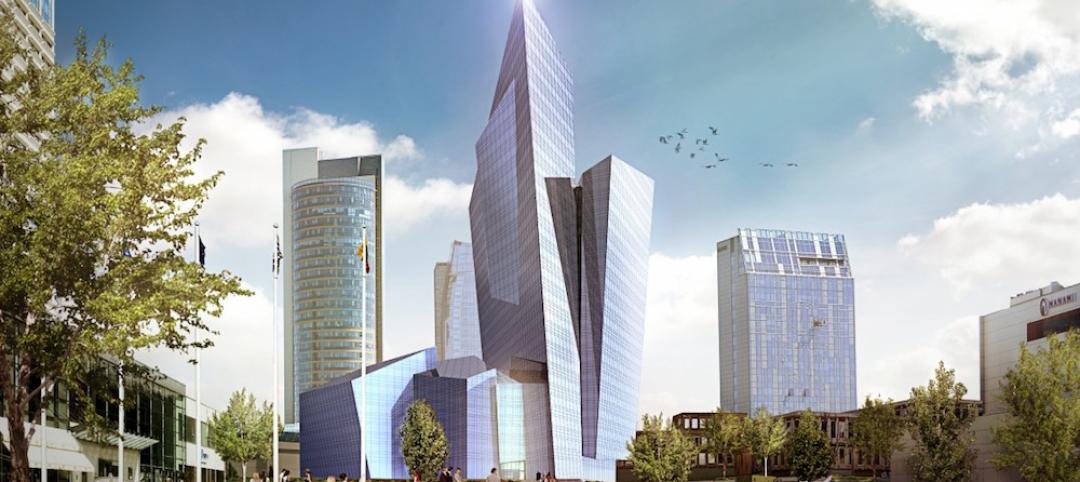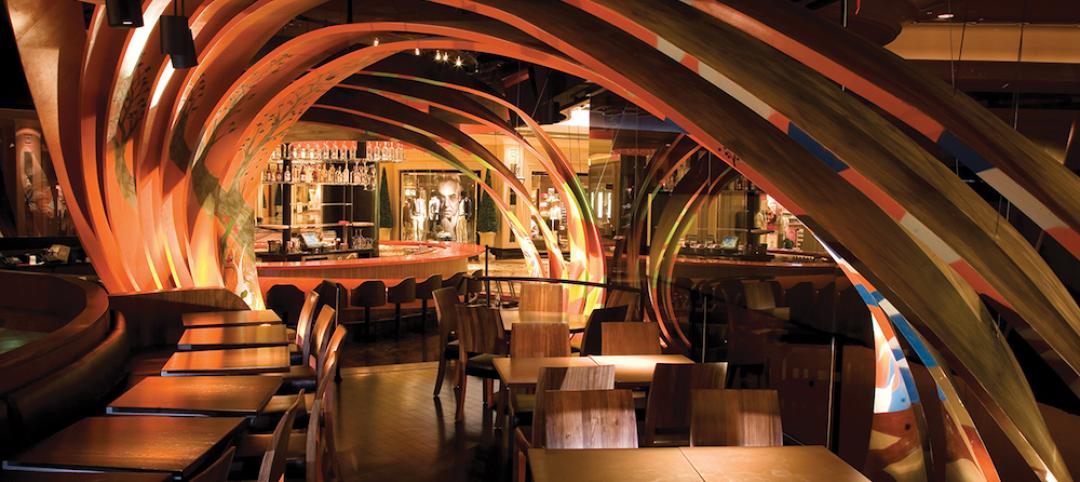Zaha Hadid Architects has announced the design of 2 Murray Road, a 36-story, 623-foot-tall project that will rise at the core of Hong Kong’s financial district. The project replaces a multi-story car park to create an urban oasis adjacent to the Chater Garden and is within walking distance to Central and Admiralty MTR metro stations.
The double-height foyer at ground level is arranged for access on multiple levels and welcomes staff and visitors with an interplay of natural light, planting, and organic forms leading up to the second floor public lobby on the city’s elevated walkway network. Suspended above the canopy of its surrounding trees, the lobby’s sculptural glass facade defines a variety of nested spaces. The color palette of these spaces differentiate key destinations within the tower.
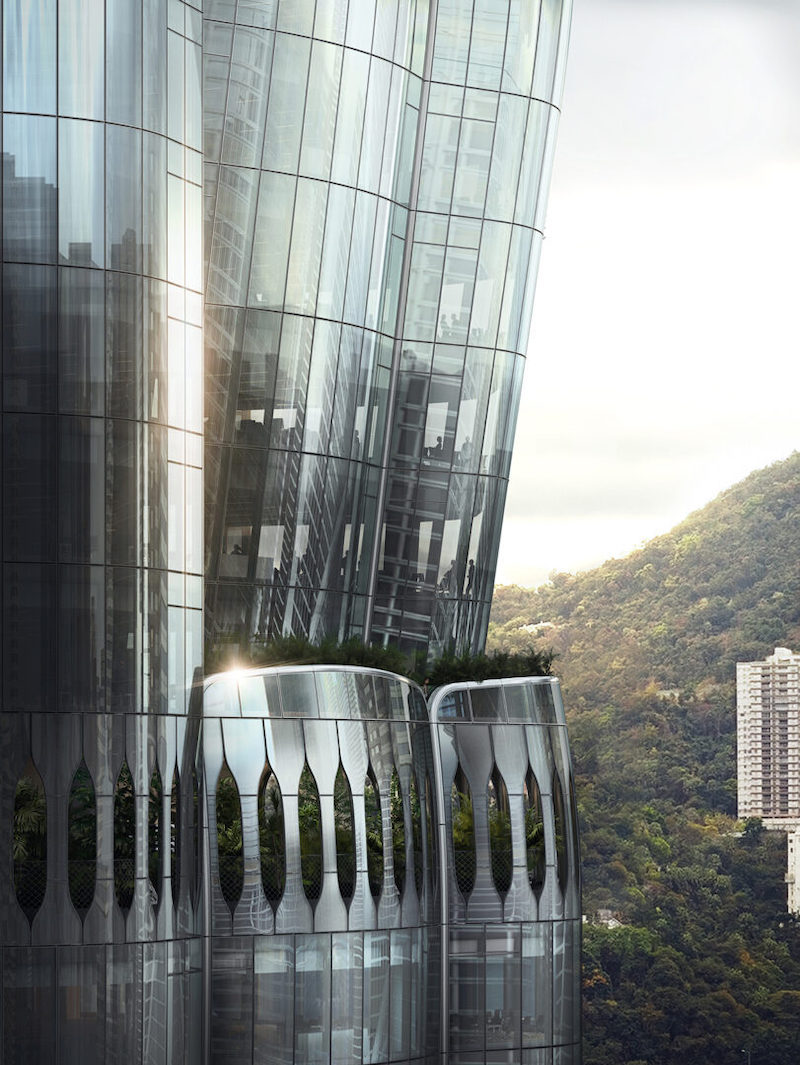 Rendering: Cosmocube.
Rendering: Cosmocube.
A Sky Garden located on the refuge floor is an outdoor recreational space with a running track and an aquaponics planting network that acts as an effective biological air-purifying filter by consuming contaminants. The banqueting hall at the top of the tower offers panoramic views of the city’s surrounding skyline and can host a variety of public and corporate events. The space includes a glazed roof and facade. A high-tensile street structure provides wide span (up to 26 meters) naturally lit, column-free, Grade A office space with five meter floor-to-floor height.
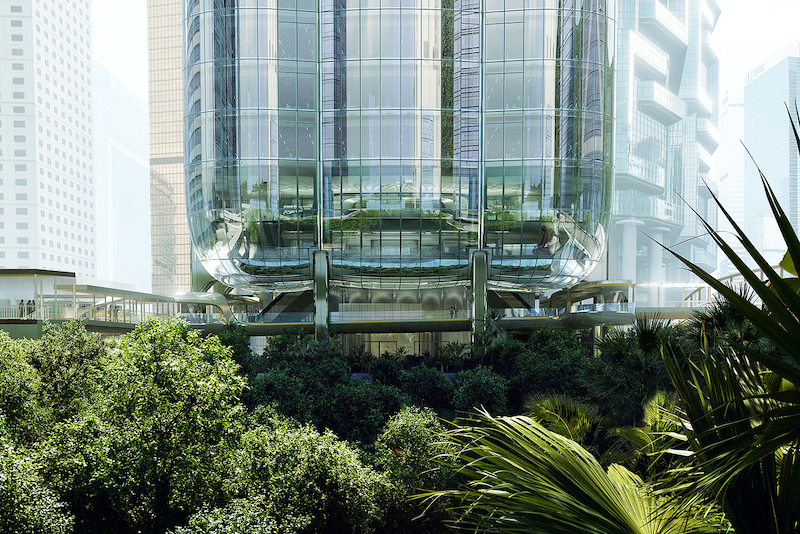 Rendering: MIR.
Rendering: MIR.
The tower’s base is elevated above the ground to shelter courtyards and gardens cultivated with trees and plants, creating new civic plazas enveloped by nature. The outdoor areas flow into generous interior communal spaces. The curved glass facade enhances the connectivity between the building’s interior and the surrounding gardens and city.
The facade itself is designed to withstand the region’s summer typhoons. It is composed of 4-ply, double-laminated, double-curved insulated glass units to effectively insulate the building and reduce its cooling load and build resilience. These glass units are the first of their kind in Hong Kong.
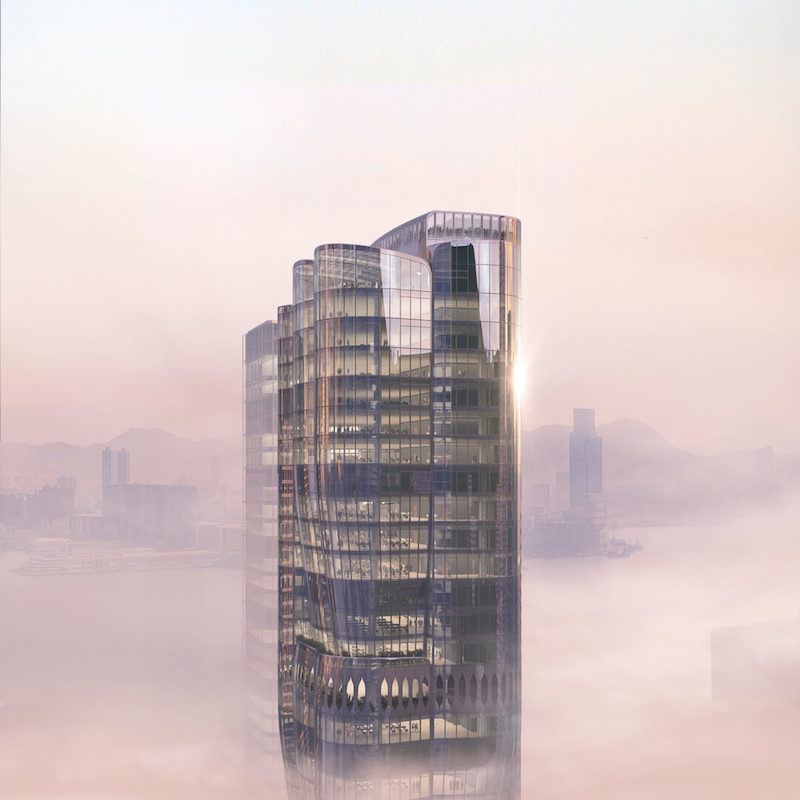 Rendering: Cosmocube.
Rendering: Cosmocube.
Hybrid ventilation is controlled by the building’s automated management system and enables all office levels to be naturally ventilated. This natural ventilation can be supplemented when required with mechanical dehumidification and filtration to further enhance the indoor environment and air quality.
The building’s air quality monitoring system will detect the degree of occupancy in any interior and automatically adjust indoor air temperature, humidity, and fresh air volume to meet demand. The smart systems learn to predict daily occupancy trends to optimize energy demand, ensuring increased efficiencies with lower energy consumption.
Two weather stations will be installed at street level and roof level to monitor real-time outdoor conditions including PM10, PM2.5, ozone, daylight (solar irradiation), wind speed (m/s) rainfall (mm), temperature, humidity (%), and noise (dB). The weather stations will inform occupants of outdoor air quality and are connected to the building’s automated management system to adjust the tower’s hybrid ventilation as required.
A solar responsive ventilator (SRV) along the western perimeter of each floor enhances the comfort of the occupants. The SRV is powered by photovoltaics to create a channel of air that has the ability to adjust solar radiative heat to the perimeter zone.
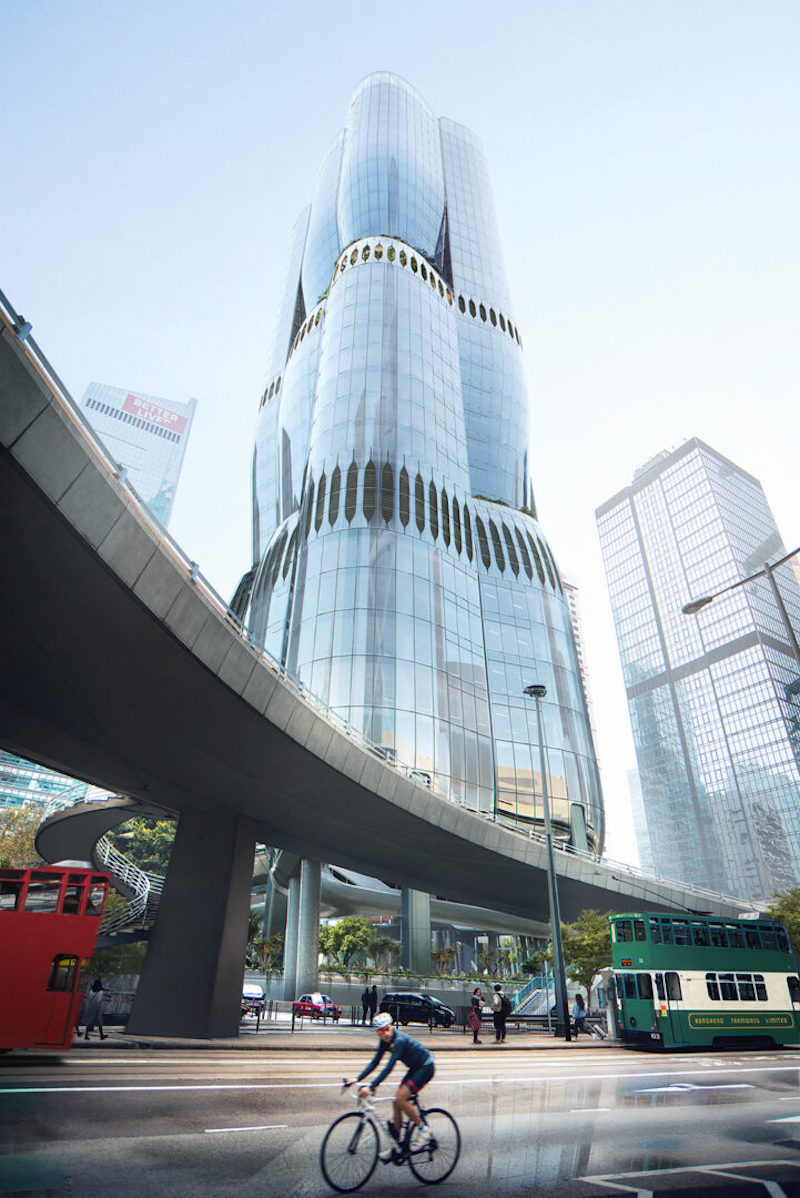 Rendering: Arqui9.
Rendering: Arqui9.
A 25% reduction in electricity demand will be achieved through the use of smart chiller plant optimization, high-efficiency HVAC equipment, and daylight sensors that reduce the artificial lighting during periods of sufficient natural light.
The project will rebuilt via a top-down construction method to accelerate the redevelopment program on-site by implementing deep basement and above-ground construction at the same time. The plot of land was purchased by developer Henderson Land for $3 billion in 2017, making it the most expensive plot of land ever purchased.
The design has achieved LEED Platinum and WELL Platinum pre-certification together with the highest three-star rating in CHina’s Green Building Rating Program.
![]() Rendering: PixelFlakes.
Rendering: PixelFlakes.
Related Stories
High-rise Construction | Nov 1, 2016
Winthrop Square will give rise to Boston’s second tallest building
The building will become the tallest residential tower in the city.
Mixed-Use | Oct 31, 2016
New Frank Gehry project on Sunset Boulevard moves forward with a few compromises
Among the compromises, the 8150 Sunset Blvd. project will see its tallest residential tower reduced by 56 feet.
Mixed-Use | Sep 27, 2016
10 Design wins competition to design huge mixed-use development in China
China Resources Land, New Fenghong Real Estate Development, and China Resources Trust have designated 50 billion yuan for the construction of the development.
High-rise Construction | Sep 12, 2016
Bangkok’s tallest tower is also one of its most unique
At 1,030 feet tall, MahaNakhon Tower’s height is only outdone by its arresting design.
Mixed-Use | Sep 9, 2016
Rolled book scroll-inspired mixed-use project from Aedas planned for Chongqing, China
With a bookstore at the heart of the development, the project looks to exemplify an ancient Chinese proverb that says “knowledge brings wealth.”
Mixed-Use | Sep 8, 2016
Former sports stadium to become landscaped gardens, housing, and shops
According to the architects, Maison Edouard François, the project will act as a new green lung for the densely populated neighborhood.
Mixed-Use | Aug 16, 2016
Goettsch Partners completes mixed-use tower in R&F Yingkai Square
The 66-story building is now the 7th tallest completed building in Guangzhou.
High-rise Construction | Jul 26, 2016
Perkins+Will unveils plans for what will be Atlanta’s second-tallest tower
The 74-story 98 Fourteenth Street will be a mixed-use building with retail space and luxury residential units.
Mixed-Use | Jul 18, 2016
Studio Libeskind designs jagged mixed-use tower for Lithuania’s capital
The glass facade, and spaces for restaurants, a luxury hotel, and offices will lure visitors and tenants.
Retail Centers | May 10, 2016
5 factors guiding restaurant design
Restaurants are more than just places to eat. They are comprising town centers and playing into the future of brick-and-mortar retail.


